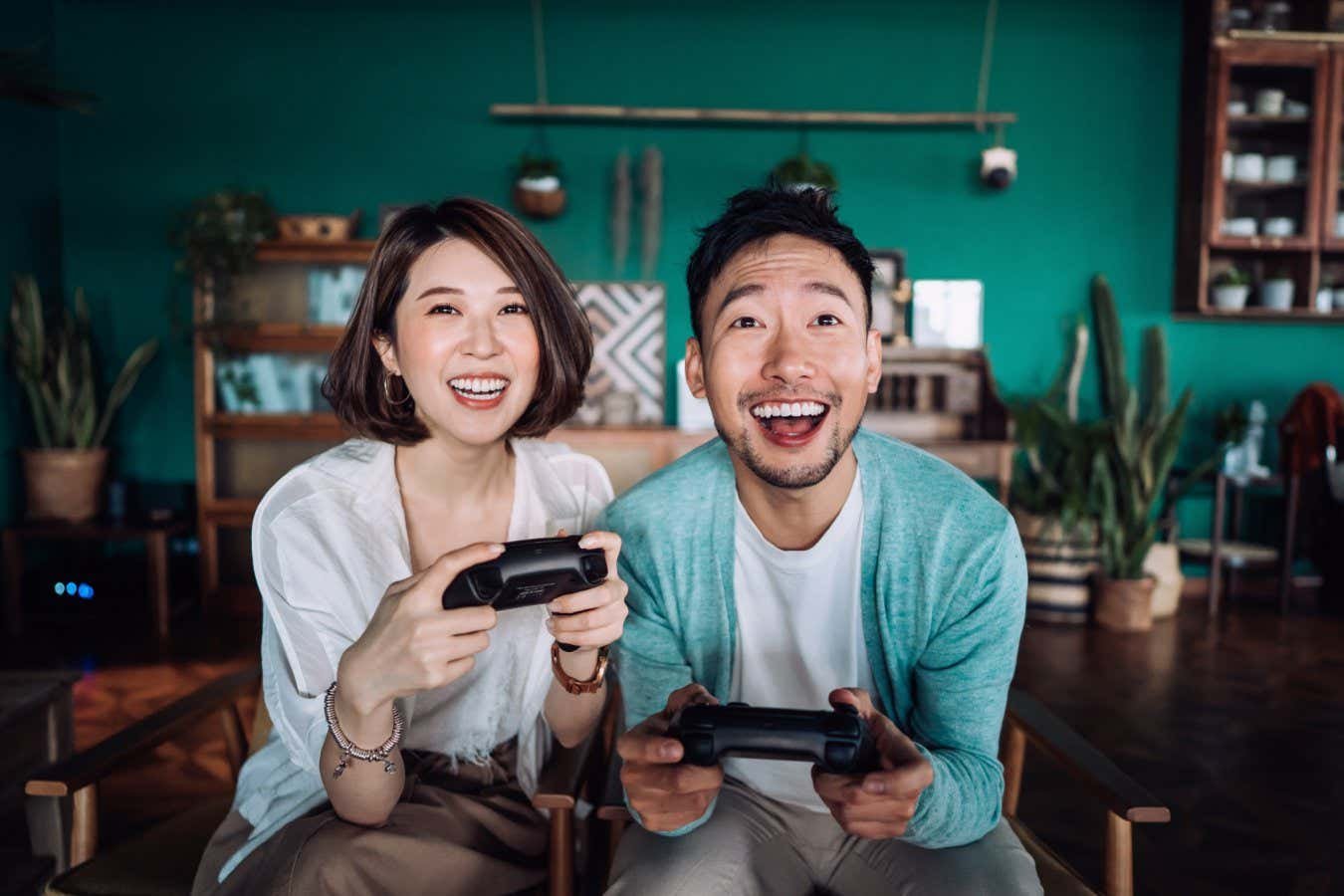
If you enjoy video games, playing them may be nothing to worry about
AsiaVision/Getty Images
Playing video games really does seem to boost your well-being, despite the pastime often being maligned. The results come from a study that took advantage of a unique situation amid the height of the covid-19 pandemic.
“I guess if you enjoy your hobby, you’re going to find a good impact to your well-being,” says Hiroyuki Egami at Nihon University in Japan.
In 2019, the World Health Organization added “gaming disorder” to its International Classification of Diseases. But research into the effects of playing video games has produced mixed results, with many studies being unable to prove cause and effect when it comes to mental health outcomes. Studies that aim to do so usually take place in the controlled setting of a lab, yet these are “far removed from what it’s actually like to play video games”, says Peter Etchells at Bath Spa University in the UK, who wasn’t involved in the latest study.
But between 2020 and 2022, Egami and his colleagues hit upon a rare chance to investigate any causal effect of video games on a person’s well-being in the real world. Consoles were in short supply during this time, so parts of Japan introduced lotteries, where people could enter a ballot to receive either a PlayStation 5 or a Nintendo Switch gaming console.
The researchers surveyed 8192 people, aged between 10 and 69, who had entered one of these lotteries. The respondents answered questions related to their gaming habits and levels of psychological distress, an indicator of mental well-being.
Egami and his colleagues found that those who won the lotteries had slightly better mental well-being scores than those who were unsuccessful, though this plateaued after about 3 hours per day of total playing time.
They also used a machine-learning model to break down the data, showing that the effect varied depending on the console and the demographics of the owner. For example, younger people with a Nintendo Switch saw an enhanced benefit compared with their older counterparts. The team also found that people who didn’t have children saw a greater benefit from having a PlayStation 5 than those who were parents.
“It highlights that, if we care about understanding how video games impact us, we need to be nuanced and specific about what it is that we’re measuring and how,” says Etchells. But the participants self-reported their playing times, which may not be accurate, he says.
Both Etchells and Egami also point out that the data was collected during the height of the covid-19 pandemic, which may have affected people’s video game habits and their well-being. Further studies using this method could discover whether the trend holds true in other contexts.
Topics:








